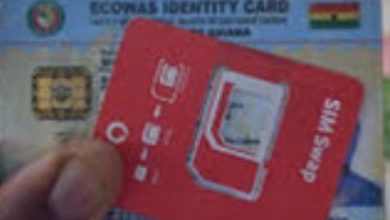‘We cannot pay VAT on electricity; we will not pay it today; we will not pay it tomorrow’ – Organised Labour
‘We cannot pay VAT on electricity; we will not pay it today; we will not pay it tomorrow’ – Organised Labour
Organised Labour has given the government a one-week ultimatum to withdraw the value-added tax (VAT) on electricity for residential customers.
The labour unions have said the implementation of the VAT on residential customers would worsen the plight of already burdened power consumers since the cost of electricity would go up by 15 per cent.
At a press conference in Accra Tuesday morning [Jan 23, 2024], the Secretary General of the Trades Union Congress (TUC) Dr Yaw Baah, stressed that the government must withdraw the implementation of the VAT or be prepared to face the wrath of workers.
“Our message to government is very simple – we cannot pay VAT on electricity; we will not pay it today; we will not pay it tomorrow,” he stressed.
Full Statement
We have sighted a circular from the Ministry of Finance, signed by the Minister for Finance, Ken Ofori Atta, dated 12th December, 2023.
The letter is directing the two main electricity distribution companies
(i.e., Electricity Company of Ghana (ECG) and Northern Electricity Distribution Company (NEDCO)) to start the “implementation of VAT for residential customers of electricity above the maximum consumption of level specified for block charges for lifeline units in line with Section 35 and 37 and First Schedule (9) of Value Added Tax (VAT) Act, 2013 (Act 870)”, effective 1st January 2024.
According to the Minister for Finance, this measure is part of Government’s Medium-Term Revenue Strategy and the IMF- Supported Post Covid-19 Programme for Economic Growth.
The implications for residential customers of ECG and NEDCO are the
following:
• The cost of electricity will go up by a minimum of 15%; and
• All residential customers who consume above the Lifeline of
30kilowatts hour will pay the 15% VAT.
It is worth noting that 30 Kilowatts hour of electricity allows the
lifeline customers to use ONLY three LED bulbs, one electric iron, one
television and one fan.
What it means is that a residential customer who uses more than three
bulbs and a refrigerator will pay VAT.
We note that since 2022, electricity tariffs have gone up by 73%. It is also important and very sad to note that while government is imposing VAT on residential consumers of electricity, plans are far advanced to remove VAT on mineral exploration in Ghana for wealthy multinational mining companies. According to media reports, the
Minister for Lands and Natural Resources, Samuel Abu Jinapor, has assured the Ghana Chamber of Mines that the policy will be implemented in the first quarter of 2024.
In situations like what Ghana is going through, our mineral resources are expected to provide a buffer to cushion the economy from external and internal shocks. But in Ghana, sadly, that is not the case.
It is always the poor people who bear the brunt. We should not allow that
to continue. Our message to government is very simple – we cannot pay VAT on electricity. We will not pay it today; we will not pay it tomorrow.
Organised Labour is, therefore, demanding the immediate withdrawal of the above-mentioned letter and another directive from the Minister for Finance to ECG and NEDCO to stop the implementation of the VAT
on residential customers of electricity.
We are giving Government up to 31st January, 2024 to withdraw the letter. If by that time the Minister for Finance has not given the directive to ECG and NEDCO to stop the implementation of VAT on
residential customers we will advise ourselves.






